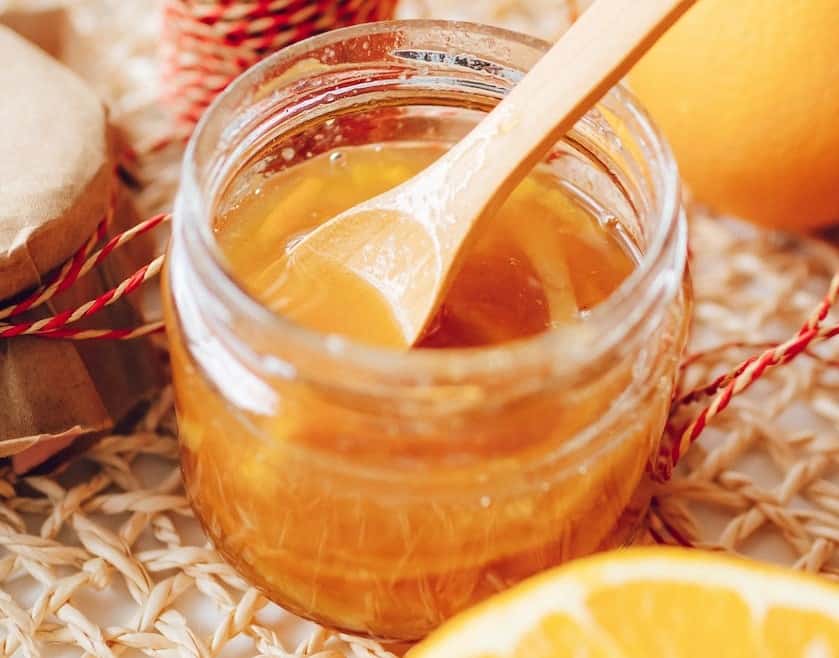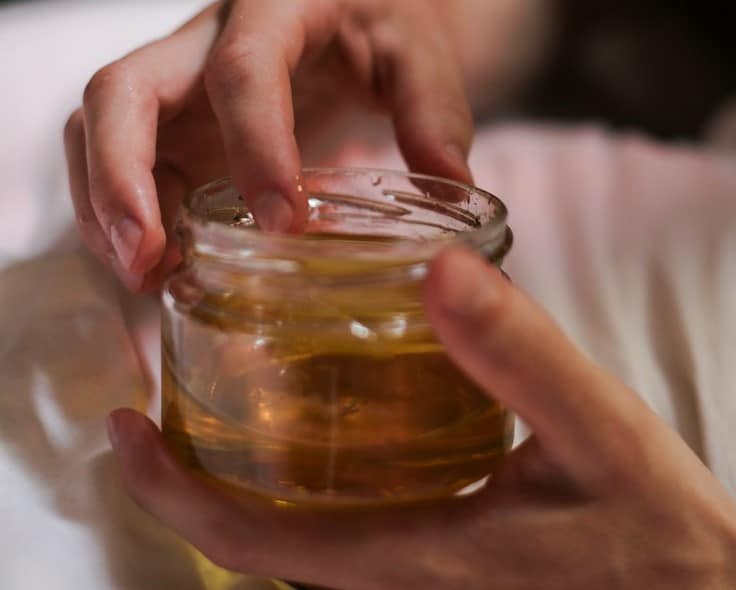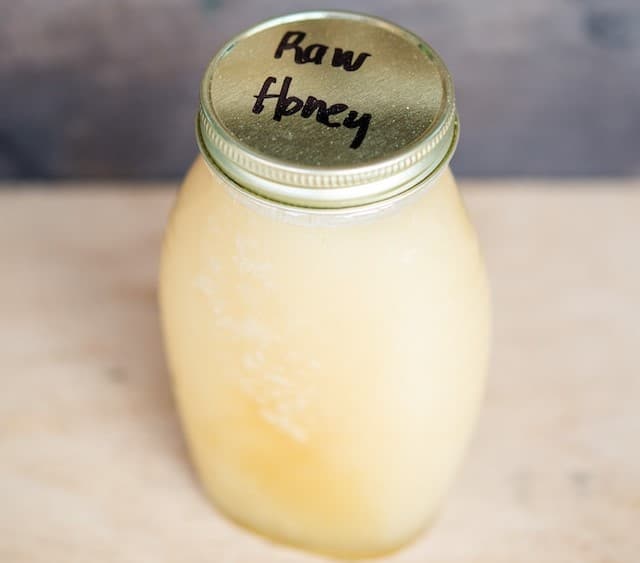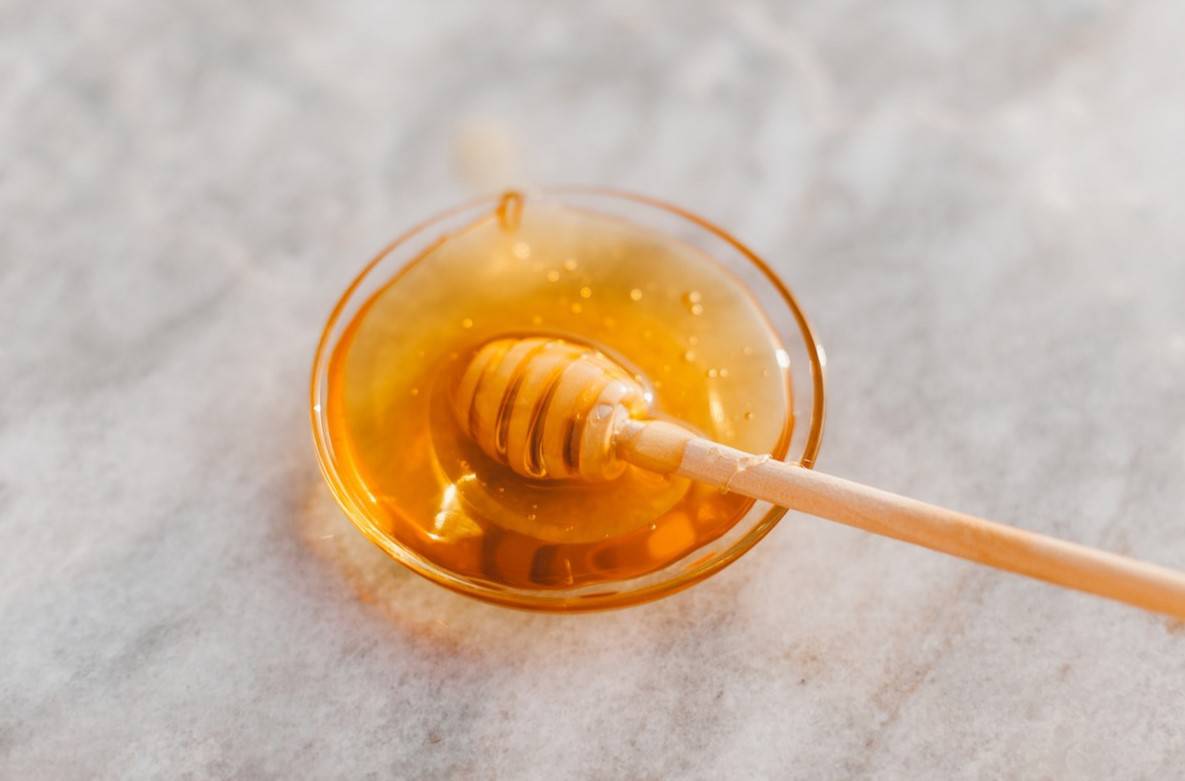Is honey good for you?
This question, among other questions about bees, beekeeping, and honey, is one of the most common ones asked by people who are looking into using this gift of nature. While others have qualms about the health benefits of this liquid gold, more of us are still in awe of its benefits.
Of course, we can easily avail of these benefits by buying a jar on the market. Or by contacting a beekeeper in your area for some supply of local honey. In any case, we have this golden syrup thanks to our six-legged friends, the honeybees.

Did you know?
Did you know that September is National Honey Month? Yes, people do celebrate the goodness of this liquid gold!
Is Honey Good For you?
Honey is said to have antibacterial, antimicrobial, and oxidative properties. These properties work to give us the medicinal benefits that this natural syrup can offer.
Additionally, honey contains vitamins and minerals to provide nutrition.
Health Benefits of Honey
Honey has always been known generally to be a healthy superfood. However, some people have qualms about the high sugar content of honey.
To put you at ease on whether honey is right for you or not, we have enumerated below the many health benefits of raw honey.
1.) Honey is a better sweetener than sugar
Many perceived natural honey as a healthy substitute for sugar. And they couldn’t be more correct. This golden syrup is a good alternative to sweeten juices, teas, and anything you want to add it to.
Honey is sweeter than sugar. You get to use and consume only a minimal amount of this liquid gold to satisfy your sweet tooth. Yes, it still has sugar on it, but since it is already so sweet as it is, you have less sugar intake. It acts as a sweetener but has health benefits that sugar does not have.
Besides being a natural sweetener, there are way more benefits we can get from this golden syrup!
Tip: Honey may be a healthier option than sugar, but remember that too much of something is also not better for the health.

2.) It helps in weight management
For people who are having problems managing their weight, raw honey is a better option. Since it is healthier than table sugar, the intake of a small amount would not hurt those trying to lose weight.
There are even claims that adding some sweet honey to warm water and a few drops of lime or lemon increases metabolism. It enables the body to burn more fat. Hence, weight gain is controlled.
Tip: Eating a small dollop of this golden syrup before going to bed aids in metabolism even when you are not actively doing something.
3.) It is claimed to boost one’s energy
Of course, since honey has sugar content, it boosts energy. Along with this, honey contains amino acids that are claimed to improve physical performance.
Additionally, the sugar content in honey is natural. It provides glucose to boost energy and fructose to sustain that energy.
Tip: Since honey contains sugar, too much consumption might cause insomnia and hyperactivity.
4.) It is believed to treat cough, colds, and flu
Interestingly, various studies show that honey serves some medicinal purposes, too. It has an antimicrobial property that is said to cure coughs, colds, and flu. This antimicrobial property soothes the sore throat and kills harmful bacteria that cause coughing and associated infection.
Old recipes for taking pure honey for colds, flu, and coughing include stirring a teaspoon of this liquid gold in a cup of warm water. Manuka honey has been highly claimed to have better effects in treating colds and flu.
For some people, including children, taking a teaspoon of it before bedtime reduces cough. All these reliefs from coughing are attained without fear of any adverse effects or other complications caused by some cough medicines.
Tip: Avoid giving honey to babies younger than one year old, as it might cause food poisoning among them.
5.) It is used in treating cuts, wounds, and burns
The glucose and fructose in honey have anti-inflammatory effects. At the same time, hydrogen peroxide in raw honey also contributes to its anti-inflammatory properties. They absorb water and prevent bacteria from growing on cuts, wounds, and burns. Thus, many have claimed that it is an effective treatment and home remedy for wound care. Its anti-bacterial properties not only work in healing wounds but also in preventing infection.
Traditional medicine has shown that it has helped in wound healing. Some people have also shared that the benefit we can derive from this golden syrup can also benefit our pets. Applying this natural syrup to wounds of animals also showed positive results of fast healing and preventing infection.
A study has shown that the anti-inflammatory activity of honey works to prevent infection. It shows the viability of being used as a topical agent for medical purposes of treating wounds and cuts.
Tip: The use of honey as a topical treatment on wounds, cuts, and burns has long been practiced since ancient times and is still being observed today.

6.) It is said to boost a person’s immune system
Consumed honey cleanses the body and boosts the immune system through its antioxidant activity. These natural antioxidants work to eliminate free radicals within our body that can lower immunity.
A study hypothesized that the use of this golden syrup instead of sugar or other artificial sweeteners increases the “enhanced antioxidant defense system” among adults, resulting in a strong immune system.
Tip: Mix one tablespoon of honey and lemon juice in a cup of warm water for a cleansing drink to boost your immune system!
7.) It is a healthy remedy for a hangover
Who would have thought that honey cures a hangover? Yes, you read that right! This is one of the many benefits of honey worthy of noting down.
This superfood has fructose that can hasten the oxidation of alcohol in the liver. As such, honey may be one good remedy for beating hangovers.
Tip: Eat a few teaspoons of honey to encourage your body to metabolize the alcohol and reduce intoxication and alcohol blood levels.
8.) It aids in preventing heart diseases
Several studies have been conducted on the effects of using honey to prevent heart disease. One of these studies concluded that its consumption controls the increase of blood glucose but decreases the total cholesterol levels in the body. With a lower cholesterol level, there is a reduced risk of sustaining heart disease and upper respiratory tract infections.
Tip: Raw honey has antioxidant properties that work in preventing oxidative stress and heart diseases.
9.) It is said to act as an effective moisturizer
When you have dry skin, honey will work wonders on you. Just apply and rub some of this golden liquid on the dry skin patches and watch it glow after a few applications.
Since it also has antimicrobial and antibacterial properties, it can help prevent skin diseases and clear skin of blemishes.
It may also be applied to dry patches of skin on the head, which causes dandruff to develop. As dandruff is often caused by dryness, this golden syrup can help prevent dandruff. Others claim it moisturizes and smoothens hair, too!
Tip: Apply and massage a dab of honey on elbows and knees to keep them moisturized and smooth.

How Much Honey a Day Is Beneficial for You?
Generally, raw honey has about 20 calories, 5 grams of sugar, and no fat for every teaspoon. Hence, its consumption must be in moderation. On average, consuming 2-4 tablespoons of this liquid gold every day is still a healthy option as long as you consume no other sugar.
One who is highly active, though, may consume more than two tablespoons as they easily burn down the sugar they intake.
But for those who are on a diet, suffering from diabetes, or maintaining low blood sugar levels, no more than two tablespoons should be taken, and that is, with no additional sugar intake. If you take in sugar in other forms, then less than two tablespoons are advised.
When Should You Not Eat Honey?
Both raw honey or regular honey and pasteurized honey are acceptable for moderate consumption. However, always check the labels on the jar you are buying to ensure that it has no added sugar or other ingredients (sometimes, corn syrup).
For diabetics and those who are strictly managing their weight, honey may not be suitable for them. Although it is a healthy alternative to sugar, it still contains some sugar that your body would take in.
Honey should not be given to infants under 12 months old. Be it raw or processed honey, it contains Clostridium botulinum, a bacteria often found in minimal amounts. When this bacteria enters an infant’s body, it can cause infant botulism. Infant botulism is a form of food poisoning caused by a toxin produced by the Clostridium botulinum bacteria.
People who are severely allergic to bee pollen are also not advised to consume or use honey until their doctor has advised otherwise.
If you are not sure whether honey is right for you, always check with your doctor or a medical professional on what is best.
